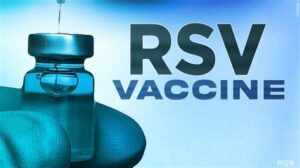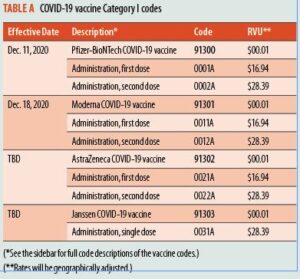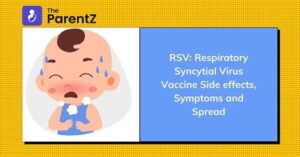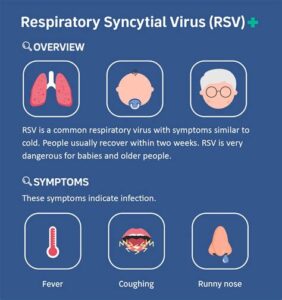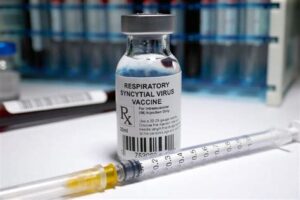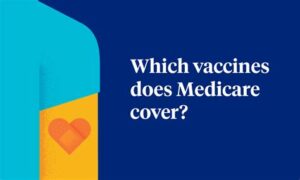Explore the safety and benefits of simultaneous COVID and RSV vaccinations, supported by healthcare recommendations for optimal health protection.As the ongoing fight against respiratory viruses continues, many are left wondering about the possibility of receiving COVID-19 and RSV vaccines simultaneously. With the emergence of new variants and the seasonal rise of respiratory syncytial virus (RSV), understanding the implications of dual vaccination has never been more crucial. This blog post will delve into the details surrounding COVID and RSV vaccines, explore the benefits and safety associated with administering them together, and outline the recommendations provided by healthcare professionals. Whether you’re a concerned parent, an at-risk individual, or just someone seeking clarity, our comprehensive analysis will shed light on the efficacy and safety of combined vaccinations to help you make informed health decisions.
COVID and RSV vaccines
The emergence of the COVID-19 pandemic has led to an urgent need for effective vaccines to combat viral infections. Alongside this, the Respiratory Syncytial Virus (RSV) has also been a significant concern, especially for young children and the elderly. The question many are asking is whether these two vaccines can be administered simultaneously.
Recent studies and healthcare recommendations indicate that administering the COVID and RSV vaccines together is not only possible but also safe. The dual administration can increase vaccination rates and help protect individuals from multiple infections in one visit, potentially improving public health outcomes.
Healthcare professionals are leaning towards simultaneous vaccination as a beneficial strategy. By combining these vaccines, they can simplify the process for patients, making it easier to adhere to vaccination schedules, especially during peak respiratory illness seasons. It’s a win-win situation that underscores the importance of ensurin
Simultaneous vaccine administration
The simultaneous administration of vaccines is a practice that has garnered attention, especially in the context of the COVID-19 and RSV (Respiratory Syncytial Virus) vaccines. Health authorities are exploring the feasibility of giving these vaccines on the same day to enhance public health outcomes and improve vaccination rates.
According to recent studies, there are multiple benefits to simultaneous vaccine administration. For instance, it can reduce the number of healthcare visits required by individuals, making it more convenient for those who need to receive both vaccines. Additionally, administering both vaccines at the same time can increase community immunity by accelerating vaccination coverage.
To assess the safety and effectiveness of simultaneous vaccinations, healthcare professionals have conducted ongoing research. Initial findings suggest that administering vaccines simultaneously does not compromise the immune response, though patients may experience mild side effects. Substantial data supports the idea that this practice can be both safe and effective for improving public health,
Safety of combined vaccination
As the world continues to grapple with infectious diseases, the question of combined vaccination has gained significant attention, particularly in relation to the COVID and Respiratory Syncytial Virus (RSV) vaccines. The safety of administering both vaccines simultaneously is a primary concern for healthcare professionals and vaccine recipients alike.
Studies have indicated that providing these vaccines together does not compromise their overall efficacy or safety. In fact, the Centers for Disease Control and Prevention (CDC) and other health organizations have reported that administering COVID and RSV vaccines concurrently can lead to a more streamlined vaccination process without increasing the risk of side effects.
Health professionals emphasize the importance of monitoring patients after receiving the vaccines. Common side effects, such as soreness at the injection site or mild fever, may be experienced, but these are typically short-lived and manageable. It’s crucial to consult with a healthcare provider regarding any concerns and to stay informed about the latest recommendations for combined vaccination.
Potential benefits of dual vaccines
The emergence of respiratory viruses, particularly COVID-19 and RSV (Respiratory Syncytial Virus), has raised the critical question of whether vaccination against these viruses can occur simultaneously. Dual vaccination presents a significant opportunity to enhance public health efforts by streamlining immunization processes and maximizing protection against severe respiratory illnesses.
One of the primary benefits of administering both the COVID-19 and RSV vaccines together is the reduction of healthcare visits. By receiving both vaccines during a single appointment, individuals can save time and increase compliance with vaccination schedules. This is especially beneficial for busy families and individuals who may otherwise delay getting vaccinated due to time constraints.
Additionally, combining vaccines can lead to decreased vaccine-discordant responses and improved immune memory. When vaccinated against both viruses simultaneously, the body may develop a more robust immune response, particularly in vulnerable populations such as the elderly and individuals with underlying health conditions. This enhanced immunity can potentially lead to fewer hospitalizations and reduced morbidity associated with these infections.
Healthcare professionals are seeing the potential for cost-effectiveness in public health campaigns aimed at incentivizing people to get vaccinated. Offering dual vaccines can streamline resources and lessen the burden on healthcare systems during peak viral seasons.
Recommendations by healthcare professionals
Amid the ongoing challenges posed by the pandemic and respiratory syncytial virus (RSV), many healthcare professionals have been closely monitoring the safety and efficacy of COVID and RSV vaccines. As these vaccines have become crucial in preventing severe illness, it is important to understand the recommendations from healthcare experts regarding their simultaneous administration.
According to the Centers for Disease Control and Prevention (CDC) and the World Health Organization (WHO), healthcare providers recommend that individuals, especially those who are most vulnerable, can receive both the COVID vaccine and the RSV vaccine during the same visit. This approach is seen as beneficial as it not only maximizes protection against both viruses but also improves overall vaccination rates.
However, healthcare professionals encourage individuals to consult with their healthcare provider to evaluate their unique health situation. Factors like age, previous vaccinations, and underlying health conditions should guide the decision. Ultimately, the goal is to provide the safest and most effec
Frequently Asked Questions
Can COVID-19 and RSV vaccines be administered at the same time?
Yes, recent studies indicate that COVID-19 and RSV vaccines can be given together without any major safety concerns.
What are the benefits of receiving COVID-19 and RSV vaccines simultaneously?
Receiving both vaccines at the same time can enhance convenience, reduce the number of healthcare visits, and potentially improve overall immunity against respiratory viruses.
Are there any specific guidelines for co-administering these vaccines?
Health authorities recommend following specific guidelines based on the latest research outcomes; it’s important to consult with healthcare providers regarding the best course of action.
What side effects should I expect from getting both vaccines simultaneously?
Common side effects may include mild soreness at the injection site, fatigue, headache, or mild fever, similar to what can occur with each vaccine alone.
Is there a recommended age for receiving COVID-19 and RSV vaccines together?
The recommended age for vaccination varies based on specific guidelines from health organizations, so it’s crucial to check the latest recommendations for each vaccine.
What should I do if I experience side effects after receiving both vaccines?
If you experience any unusual or severe side effects after vaccination, you should contact your healthcare provider for advice and potential evaluation.
How will co-administration of the vaccines impact public health efforts?
Co-administration may improve vaccination rates, thereby helping to control both COVID-19 and RSV outbreaks more effectively within communities.
